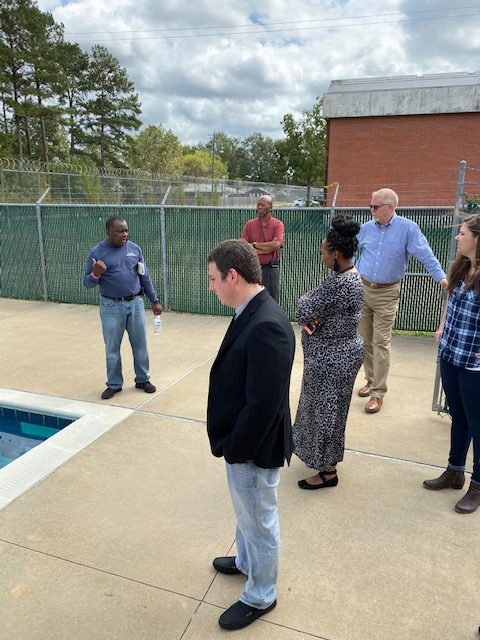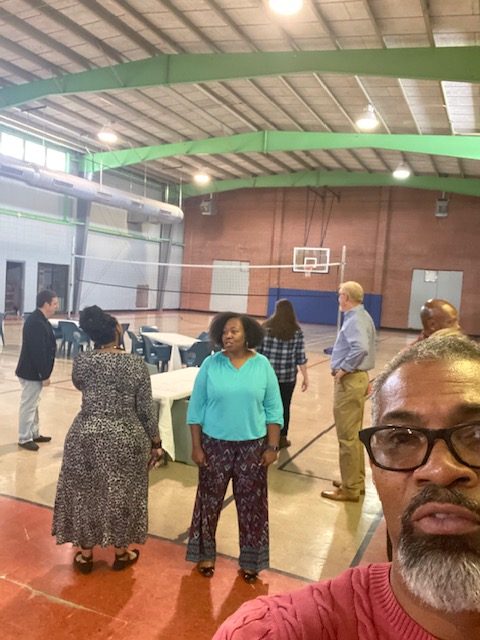
The 3rd quarter meeting of JJAC was held at Oakley Youth Development Center. Members and guests toured the campus and visited with the staff to see all of the new programs and changes that have taken place in the last few years.
Oakley is the state’s only juvenile facility and admits youth who have been adjudicated for an offense that, if committed by an adult, would be classified as a felony. Youth between the ages of 10-17 can be committed by a youth court. The youth’s length of stay is determined by several factors including the youth’s behavior and compliance while at the facility. Youth receive complete medical and dental services while at Oakley as well as psychiatric services, if needed by the youth. There is a strong recreational program at OYDC to include a full size pool for youth to swim in in the summer months.
The psycho-educational program offered at OYDC begins with standardized admission, intake screening, and orientation assessment. Once assessed, the student is placed into an appropriate housing unit and staff begins developing a comprehensive service plan for the youth involving treatment programs, counseling, recreation, and education.
After mental health, physical, academic and vocational aptitude assessments are completed along with a complete physical exam; students are placed in academic and/or vocational classes, based on assessment results and the cumulative educational records at Williams School, the educational branch of OYDC.
Services offered through Williams School include:
- Computer labs that provide remedial, job interest assessments and cognitive development.
- An Interactive Video Network which allows students to interact with each other in GED and gifted classes. The electronic classrooms also give students the ability to take “electronic field trips” and view satellite downlinks of various programs.
- Library/Media Services.
- Character education training to develop responsible citizenship skills.
- G.E.D. preparation and testing for eligible students.
- A.C.T. Preparation and Testing for students who have graduated or earned a G.E.D.
- Vocational training that includes classes in welding, carpentry, small engine repair, brick masonry and basic business computer.
Individual and group therapy counseling emphasizes:
- Reality therapy.
- Social skills development.
- Anger management.
- Sex education.
- Drug and alcohol awareness.
- Character education.
- Sexual offender counseling.
- Psycho-correctional skills.
- Diagnostic and evaluation allow staff to gather medical, dental, recreational, educational, vocational and psychological data. Each student receives a complete physical and a full-scale psychological assessment which includes: IQ testing, personality profile, drug and alcohol abuse risk questionnaire, suicide risk assessment, achievement testing and a trauma risk assessment.






